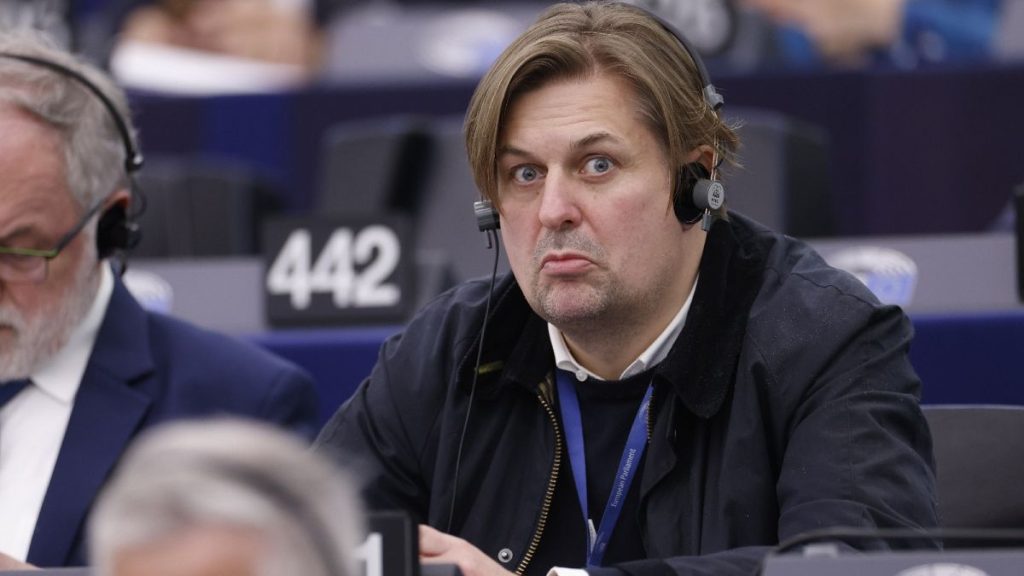The far-right Alternative for Germany (AfD) party has been embroiled in multiple scandals in recent months, resulting in a decline in its standing in the polls. Maximilian Krah, the lead candidate for the European elections, resigned from the party’s federal executive board after coming under pressure from other European far-right parties due to controversial statements he made regarding the SS Nazi paramilitary group. Despite his resignation from the board, Krah is still in the running for re-election as an AfD member of the European Parliament.
In response to Krah’s comments, several of AfD’s allies in the European Parliament’s far-right Identity and Democracy (ID) group announced that they would end their alliance with the German party. This included Denmark’s far-right DF and France’s Rassemblement National (RN). The RN’s lead candidate, Jordan Bardella, stated that they would no longer sit with the AfD after the upcoming elections due to the party crossing what he considered to be red lines. Italy’s Lega party also expressed support for this decision, aligning with the RN and DF.
Aside from Krah’s controversial comments, the AfD has been plagued by other scandals, including Krah’s assistant being arrested on suspicion of being an employee of the Chinese secret service and passing on information to his intelligence client. Another AfD member was accused of accepting money from a Moscow-backed influence operation. These scandals have negatively impacted the AfD’s standing in the polls, with the party’s share of the vote decreasing and the Christian Democratic Union (CDU) leading in popularity.
The AfD’s potential removal from the Identity and Democracy (ID) group could impact the group’s projected increase in seats from 59 to 82 in the upcoming European elections, according to Euronews’ Poll Centre. The European Conservatives and Reformists (ECR) group, which includes former ID parties, is also expected to see an increase in seats. Despite traditionally weak influence due to infighting and pro-EU groups’ cordon sanitaire, the ECR and ID groups may seek to bridge their differences to enhance their impact on European politics.
Anders Vistisen of Denmark’s DF suggested that the ECR and ID groups could overcome their internal divisions to bolster their influence, noting that there is no significant political divide between the two groups compared to other mainstream parties in the European Parliament. By potentially uniting to maximize their strength in the Parliament, these right-wing factions could play a more substantial role in shaping European policies and decisions.


